Recent Blog Posts
The Varying Degrees of Assault Charges
 Being accused of any crime is an unnerving experience; criminal charges have the power to severely alter your present circumstances and your entire future, potentially affecting everything from your employment options to your educational choices. Assault charges in particular are especially damaging, as they are often the most serious and carry with them the most devastating consequences. There are some important things to consider when discussing the crime of assault.
Being accused of any crime is an unnerving experience; criminal charges have the power to severely alter your present circumstances and your entire future, potentially affecting everything from your employment options to your educational choices. Assault charges in particular are especially damaging, as they are often the most serious and carry with them the most devastating consequences. There are some important things to consider when discussing the crime of assault.
“Assault” is a Broad Term
Assault crimes and charges can vary greatly. The law uses the term “assault” to refer to the carrying out of physical, bodily harm on someone else, or a presented threat to carry out such harm. Threats to hurt someone, being involved in a public disturbance, domestic violence, a breach of peace, and other types of disorderly conduct that involve the harm of another human being are all considered forms of assault. In general, less serious assault charges are categorized as third-degree. They are typically the lowest level of assault charges, while first-degree charges are the most serious. The severity of the injury and whether or not a weapon was used are just a few factors that determine the level of assault charge.
Juvenile Crimes: Delinquency Prevention Efforts and Why They Are So Important
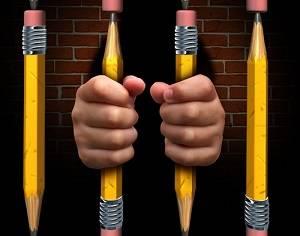 For a variety of reasons, young people are, sadly, the culprits of countless crimes—theft and property crimes, in particular. Such behavior is typically indicative of a much larger problem. Youths who commit crimes are often emotionally and mentally troubled, or they have simply surrounded themselves with negative influences who have paved the way for their poor choices. Most youth-driven crimes are usually minor, but what may be considered a small theft or abuse of property can be the beginning of a pattern early on that later becomes a much more serious problem.
For a variety of reasons, young people are, sadly, the culprits of countless crimes—theft and property crimes, in particular. Such behavior is typically indicative of a much larger problem. Youths who commit crimes are often emotionally and mentally troubled, or they have simply surrounded themselves with negative influences who have paved the way for their poor choices. Most youth-driven crimes are usually minor, but what may be considered a small theft or abuse of property can be the beginning of a pattern early on that later becomes a much more serious problem.
Delinquent Acts Versus Adult Crimes
Juvenile crimes are like any other crimes; they include everything from burglary, larceny, and motor vehicle theft to shoplifting and assault. One of the distinctions is that when a juvenile commits an offense that is considered by law to be an “adult” crime, the juvenile is deemed a delinquent--essentially a young criminal. This means they are prosecuted for delinquent acts, not crimes, with the exception of serious delinquent acts, which can, depending on the circumstances, be tried in court as adult crimes.
Three Things You Need to Know About Refusing to Submit to a Breathalyzer Test
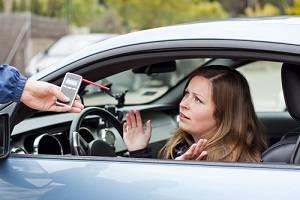 One of the most prevalent questions drivers arrested for the suspicion of operating under the influence tend to have is whether or not they are permitted to refuse the breathalyzer test upon arrest. The answer to this question is generally straightforward. According to the law in the state of Connecticut, you are within your rights to refuse to submit to a breathalyzer test if you are pulled over for the suspicion of drinking and driving. However, there are consequences you need to be aware of should you decide to refuse the test.
One of the most prevalent questions drivers arrested for the suspicion of operating under the influence tend to have is whether or not they are permitted to refuse the breathalyzer test upon arrest. The answer to this question is generally straightforward. According to the law in the state of Connecticut, you are within your rights to refuse to submit to a breathalyzer test if you are pulled over for the suspicion of drinking and driving. However, there are consequences you need to be aware of should you decide to refuse the test.
1. Your Driver’s License Is Automatically Suspended
One of the first consequences you will face when you are found to be operating under the influence is the suspension of your license. The Department of Motor Vehicles (DMV) has the authority to suspend your driving privileges if you fail or refuse a breathalyzer test or other form of chemical testing. As a first time offender, you will lose your license for six months for failing a test if you are over the age of 21, or for 12 months if you are between the ages of 18 and 20. Younger first time offenders who are 16 or 17 years of age will lose their license for 18 months.
Recent Juvenile Crime Rates: What to Do if Your Child Becomes a Statistic
 Juvenile crimes are among some of the most heartbreaking, especially where parents and loved ones are concerned. Everything from bullying, campus crimes, sex offenses, and drug allegations continue to impact not only the juveniles found guilty of such crimes, but families, friends, and, of course, victims, as well. Anyone involved in these juvenile offenses can testify to the life-altering effects brought on by such tragic behavior.
Juvenile crimes are among some of the most heartbreaking, especially where parents and loved ones are concerned. Everything from bullying, campus crimes, sex offenses, and drug allegations continue to impact not only the juveniles found guilty of such crimes, but families, friends, and, of course, victims, as well. Anyone involved in these juvenile offenses can testify to the life-altering effects brought on by such tragic behavior.
Recent Developments in Juvenile Crime Rates
As of January 2016, Connecticut has seen a 54 percent decrease in annual juvenile arrests and incarcerations since 2009. During that same period, there has been a 75 percent decrease in inmates under the age of 18. These statistics are encouraging, driven by the “Raise the Age” state initiative that went into effect back in 2012, which raised the age of juvenile jurisdiction to age 18. Additionally, the percentage of young offender cohort arrests declined, and arrest rates for juveniles aged 16 to 21 on an annual basis have been consistently dropping.
Facing Charges for Possession of Marijuana and Other Drugs
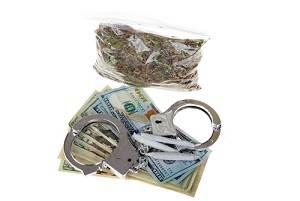 When you are found to be in possession of marijuana or other drugs, whether you are in a public place or in the company of friends, you may face serious criminal charges from a number of different angles. The consequences can be even more grave when those charges involve distributing, selling to, or employing minors to sell such drugs.
When you are found to be in possession of marijuana or other drugs, whether you are in a public place or in the company of friends, you may face serious criminal charges from a number of different angles. The consequences can be even more grave when those charges involve distributing, selling to, or employing minors to sell such drugs.
Penalties for Possession
According to Connecticut law, marijuana charges (and other certain controlled substances) are penalized in the following ways:
- For less than one-half an ounce of a cannabis-type substance, the first offense is a $150 fine, plus a 60-day suspension of driving privileges for anyone under age 21;
- For at least one-half an ounce but less than four ounces of a cannabis-type substance, the first offense means a one-year prison term plus a $1,000 fine. For possession of four ounces or more, you are looking at a five-year prison term and a $2,000 fine; and
OUI License Suspension: Drunk Driving and Your Driving Privileges
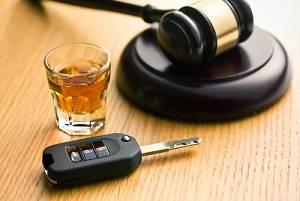 With or without any direct evidence of a person's BAC (blood alcohol concentration), Connecticut police have the right to prosecute when a driver is found to be impaired by drugs or alcohol while operating a vehicle. The state of Connecticut considers this a criminal offense and takes the prosecution of such offenses very seriously, beginning with the automatic suspension of one’s driver’s license.
With or without any direct evidence of a person's BAC (blood alcohol concentration), Connecticut police have the right to prosecute when a driver is found to be impaired by drugs or alcohol while operating a vehicle. The state of Connecticut considers this a criminal offense and takes the prosecution of such offenses very seriously, beginning with the automatic suspension of one’s driver’s license.
The moment you are arrested for OUI, you are escorted to the police station and your vehicle must be towed at your expense. There are two ways you can lose your license following an OUI arrest in the state of Connecticut: by failing or refusing a chemical alcohol test or through court conviction.
What Happens to My Driving Privileges Under Connecticut Law?
Typically, the OUI arrest report is sent to the Department of Motor Vehicles, or DMV, where a suspension is imposed under Connecticut General Statute (§14-227b ) for either the refusal to submit to a chemical alcohol test or for the failure of such test. The arresting officer usually chooses which test they require you to take: blood, breath, or urine. The suspension usually begins around 30 days following the arrest date and lasts for at least 45 days.
Defending Against Charges of Online Solicitation of a Minor
 Reputations can be completely devastated simply by the mere mention of a sexual offense charge. When a child is included, lives and families can be ripped apart just by a simple accusation. When someone is convicted of such a crime, the impact has the potential to wreak so much havoc that the person convicted is unable to recover. It is imperative to find the best possible defense for yourself as doing so can be life altering. What are the potential defenses for a charge of online solicitation of a minor?
Reputations can be completely devastated simply by the mere mention of a sexual offense charge. When a child is included, lives and families can be ripped apart just by a simple accusation. When someone is convicted of such a crime, the impact has the potential to wreak so much havoc that the person convicted is unable to recover. It is imperative to find the best possible defense for yourself as doing so can be life altering. What are the potential defenses for a charge of online solicitation of a minor?
What the Charge Entails
It is important to understand that anything involving a crime facilitated by a computer or other device is governed by laws that are ever-changing. The rate at which technology is advancing presents a legal struggle for the law to address this fairly new realm of crime. In Connecticut, solicitation is known as “enticement”. Connecticut General Statutes provide that “a person is guilty of enticing a minor when such person uses an interactive computer service to knowingly persuade, induce, entice or coerce any person under sixteen years of age to engage in prostitution or sexual activity for which the actor may be charged with a criminal offense.”
Juvenile Crimes and the Consequences That Follow
 It is very common for parents of children facing a juvenile offense to feel overwhelmed following the initial accusation. Is your child really guilty? How could they have committed such a crime? Who will be responsible financially, and how long or how severe will the punishment be? Juvenile crime cases can affect a child’s future in countless ways, especially when they occur during or around graduation time, during college, or before a big life transition. Jobs, career paths, and even college plans can all be impacted as a result of a juvenile offense.
It is very common for parents of children facing a juvenile offense to feel overwhelmed following the initial accusation. Is your child really guilty? How could they have committed such a crime? Who will be responsible financially, and how long or how severe will the punishment be? Juvenile crime cases can affect a child’s future in countless ways, especially when they occur during or around graduation time, during college, or before a big life transition. Jobs, career paths, and even college plans can all be impacted as a result of a juvenile offense.
Common Juvenile Criminal Offenses
The state of Connecticut sees young offenders get involved with everything from drug, theft, and assault crimes to more serious and dangerous crimes, such as murder and sex crimes. Some common juvenile criminal offenses that require proper legal representation include:
Internet Business Fraud and Theft
 Internet-based business fraud and theft in the state of Connecticut is a multi-faceted crime that has far-reaching consequences for everyone involved. Computer and internet crimes can include everything from identity, credit card, check, and wire fraud to healthcare theft and Medicare scams. Crime rates for these types of offenses continue to grow as our technological abilities continue to advance. Offenders are continually developing new, creative strategies and evolving in their schemes to reflect the current trends and stay one step ahead of authorities.
Internet-based business fraud and theft in the state of Connecticut is a multi-faceted crime that has far-reaching consequences for everyone involved. Computer and internet crimes can include everything from identity, credit card, check, and wire fraud to healthcare theft and Medicare scams. Crime rates for these types of offenses continue to grow as our technological abilities continue to advance. Offenders are continually developing new, creative strategies and evolving in their schemes to reflect the current trends and stay one step ahead of authorities.
Types of Internet Fraud
Internet fraud varies and covers a wide range of areas, including but no limited to:
- Stalking and harassment;
- Enticing minors;
- Terrorist crimes and threats;
- Misuse of computer system information;
Crime Rates Among Juvenile Offenders
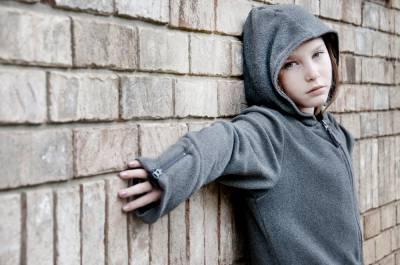 If you have been charged in connection with a crime or criminally sentenced, it can have far-reaching effects for the rest of your life. It may be more difficult to find work, or to participate in particular activities (going to certain areas, seeing certain people). If you are convicted of a felony, you may even be stripped of basic civil rights—convicted felons are barred from voting in 12 states. In Connecticut, a convicted felon who has been committed to the state correctional system and is residing in the correctional institution facility or community residence, he or she cannot vote. This person may be able to restore his or her voting rights, but whether he or she is able to do so is determinate upon the conviction and the specifics of the case surrounding it. Despite these long-lasting effects that can wreak havoc on a person’s life, if you are convicted of a crime as a juvenile, it can be even more devastating.
If you have been charged in connection with a crime or criminally sentenced, it can have far-reaching effects for the rest of your life. It may be more difficult to find work, or to participate in particular activities (going to certain areas, seeing certain people). If you are convicted of a felony, you may even be stripped of basic civil rights—convicted felons are barred from voting in 12 states. In Connecticut, a convicted felon who has been committed to the state correctional system and is residing in the correctional institution facility or community residence, he or she cannot vote. This person may be able to restore his or her voting rights, but whether he or she is able to do so is determinate upon the conviction and the specifics of the case surrounding it. Despite these long-lasting effects that can wreak havoc on a person’s life, if you are convicted of a crime as a juvenile, it can be even more devastating.







